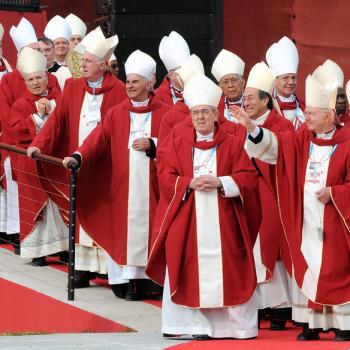Thanks to those of you who reviewed the Beowulf movie on this blog. You saved at least one middle school teacher from taking her 7th graders, which would have been highly embarrassing, to say the least.
One writer, Blake Gopnik, also found the movie falling short of the original, but he gave some different reasons. Mr. Gopnik said that when he read the poem as a young man, it was so compelling to him that he studied Anglo-Saxon in college so that he could read it in the original language. What he loved about it was precisely how different its imaginative world is from our own. The movie makers, though, thought they had to make it up-to-date and thereby eliminated its alienness, which is its biggest appeal.
reading “Beowulf” takes us to a new place, where people think about the world and its stories in terms that don’t make sense to us. That’s why it takes a year and more to come to terms with it (at least in Anglo-Saxon) and why the effort’s worth it.
I don’t buy the tired old cliche that “Beowulf” is great because it touches universal themes. What’s great is that it isn’t universal; that it’s its own thing; that its bards managed to build a world for us that’s so complete a package, in its verse and tale and coloring, that we can still get lost in it all these centuries later. Whereas watching the movie leaves us absolutely in the place and present where we started out. It’s just “Die Hard” in chain mail.
Don’t get me wrong. I’m a big fan of “Die Hard” and “Spider-Man” and even trashier fare. (Did someone just say “X-Men III”?) It’s just that I’m also a fan of “Beowulf” as something very different from all that — as a work that truly makes you put yourself into the skin of an ancient Germanic marauder. What could be more thrilling than that?
In all their many interviews, it’s clear that the creators of the film could barely stomach the strange “Beowulf” they started out with. They didn’t dare imagine that, even with a little cinematic help, their audience might ever come to terms with its foreignness. Instead, they had to bring the poem fully “up to date” and make it easily digestible.
This is a brilliant point, applicable to much ancient and other-cultural literature and to the way they are translated. Consider, for example, many modern Bible translations. The up-to-date language tries to make Abraham and Isaac into one of our contemporaries. They are not! They are from an ancient world very different from our own. A good Bible translation, to be fully accurate, should faithfully render the strangeness and the obscurities, instead of trying to make everything familiar and clear when the original is not so. A good Bible translation should, like the Beowulf poem, take us into its world. That’s why the King James version–whose translators purposefully used language that was already archaic in their own time–is still so evocative and powerful.











